Technical Tour
Conference attendees have the option of signing up for a Technical Tour, which will take place on Monday, April 11, from 5:45 to 8:00 p.m., after the rest of the conference activities have concluded. Taking part in the tours costs $20, which can be paid during registration; this fee covers the cost of transportation to the tour locations. Participants will leave from the hotel promptly at 5:45 p.m. and will visit all of the laboratories listed below.
Penn Sim Center
https://www.uphs.upenn.edu/simcenter/
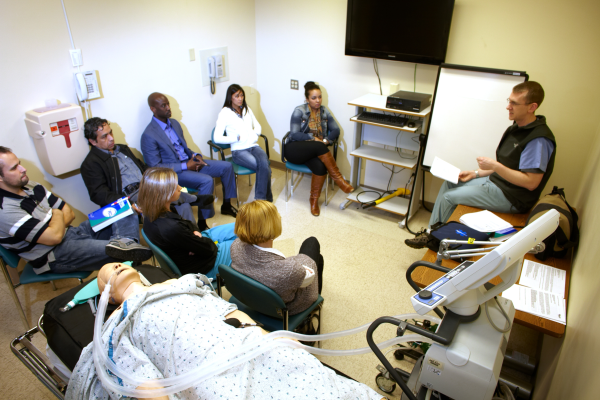 |
The Penn Medicine Clinical Simulation Center, housed in a 22,000 square foot facility (previously an operating room suite) uses state-of-the-art simulation techniques and technology to provide training to healthcare professionals both at the University of Pennsylvania and in the community aimed at improving clinical education and patient safety. |
Expressive and Creative Interaction Technologies (ExCITe) Center
https://www.drexel.edu/excite
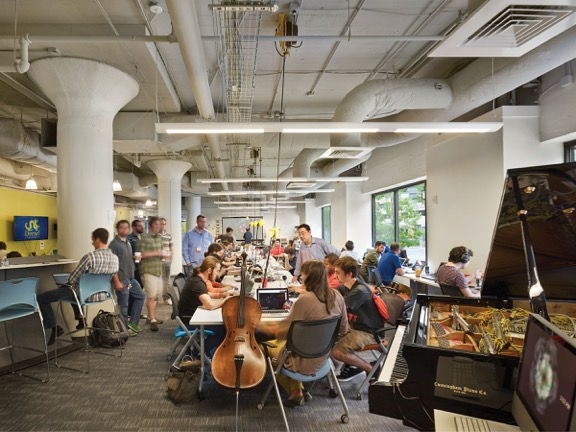
The ExCITe Center was established at Drexel University in 2013, pursues activities at the intersection of three crucial areas for the future: Design, Technology, and Entrepreneurship. Through the ExCITe Center we have a unique opportunity to develop a more cohesive academic ecosystem of learning, exploring, and advancing the application of new knowledge, particularly for the emerging digital creative economy, and to engage in problem solving with stakeholders outside of higher education.
The ExCITe Center facility houses three faculty led research labs:
- Supported by a groundbreaking partnership agreement with Shima Seiki USA, the Shima Seiki Haute Technology Laboratory is a state of the art digital knitting facility to advance wearable technologies. Founding Director Prof. Genevieve Dion leads efforts to explore the development of knitted electronics in textiles through making and prototyping.
- The Music and Entertainment Technologies Laboratory (MET-lab) explores the intersection of technology and creative expression. Founded by Prof. Youngmoo Kim, the lab has developed unique learning programs integrating music technology and robotics and has ongoing collaborations with The Philadelphia Orchestra and Opera Philadelphia.
- The Entrepreneurial Game Studio (EGS) is dedicated to the hands-on learning of game development and coding by supporting student-founded digital game companies. Led by Prof. Frank Lee, the Studio passionately pursues inclusion in computing, leading efforts to broaden participation by girls and underrepresented groups in game design.
Drexel University Laboratory for Biological Systems Analysis
https://mem.drexel.edu/LBSA/
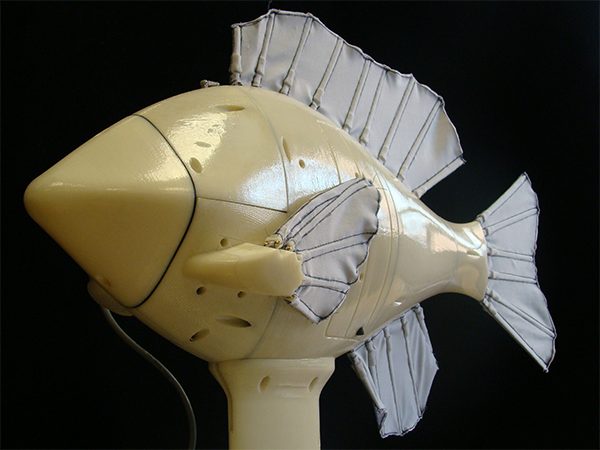
The research in the Laboratory for Biological Systems Analysis applies system level engineering techniques to biological systems with emphasis on:
1) The development of bio-robotic models as tools for investigating hypotheses about biological systems;
2) The use of system identification techniques to evaluate the functional performance of physiological systems under natural behavioral conditions; and
3) The design of systems that are derived from nature and utilize novel technologies, such as electro-active polymers, to achieve superior performance and function.
University of Pennsylvania Haptics Group
https://haptics.seas.upenn.edu
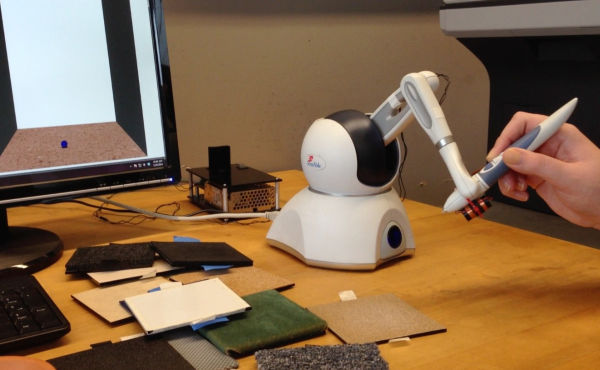
The Haptics Group is part of the GRASP Lab at the University of Pennsylvania and is directed by Katherine J. Kuchenbecker, an Associate Professor in the Mechanical Engineering and Applied Mechanics Department. Our research leverages scientific knowledge about the sense of touch to create haptic interfaces that enable a user to interact with virtual objects and distant environments as though they were real and within reach. Our key insight in this endeavor has been that tactile cues, such as high-frequency tool vibrations and the making and breaking of contact, convey rich mechanical information that is necessary to make the interaction feel real, but this type of feedback has rarely been included in haptic simulations and teleoperation systems. We actively collaborate with clinicians in several specialties to refine our research for practical use in medicine and medical training. Our work in haptic feedback for teleoperation led us to realize that autonomous robots can also benefit from attending to the dynamic tactile cues that occur as they manipulate objects in their environment. Our goal is to elevate and formalize our understanding of haptic feedback while simultaneously uncovering new opportunities for its use in interactions between humans, computers, and machines.
GRASP Lab
https://www.grasp.upenn.edu
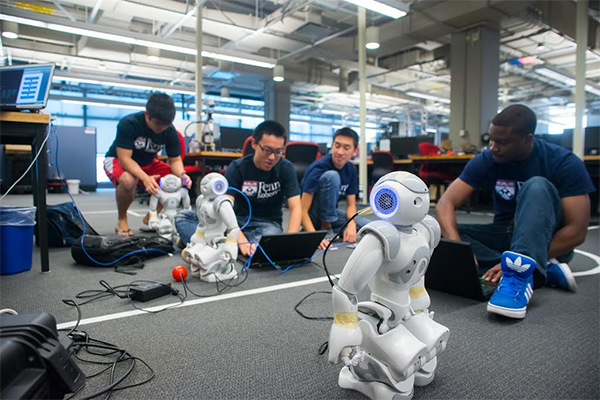
The General Robotics, Automation, Sensing, and Perception (GRASP) Laboratory is an interdisciplinary academic and research center within the School of Engineering and Applied Sciences (SEAS) at the University of Pennsylvania. Founded in 1979, the GRASP Lab is a premier robotics incubator that fosters collaboration between students, research staff and faculty focusing on fundamental research in vision, perception, control systems, automation, and machine learning. The faculty and students belong to several different SEAS departments, including Computer and Information Science, Mechanical Engineering and Applied Mechanics, and Electrical and Systems Engineering.
Please email chairs@hapticssymposium.org with any questions about the technical tour.

